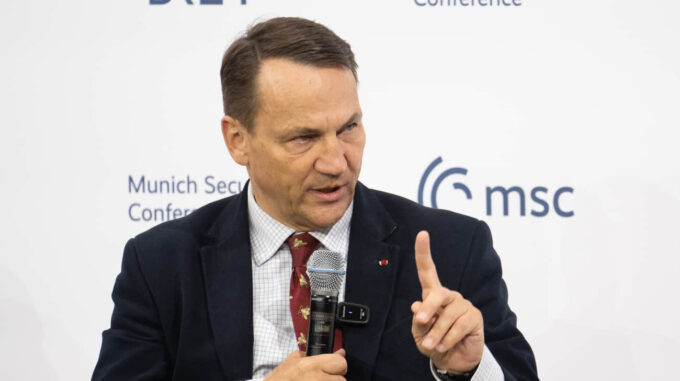Polish Foreign Minister Radosław Sikorski announced sweeping changes in the note of diplomatic relations with the Russian Federation in the context of the alarming events of recent months

In particular, the Polish diplomat reported the revocation of consent for the operation of the Russian consulate in Kraków, citing new evidence of Russian intelligence services' involvement in the arson of a shopping mall in Warsaw and a series of other sabotage acts that shook Poland this spring. As Radosław Sikorski noted in his social media post, it was based on the evidence collected by investigators that he decided to "withdraw permission for the activities of the Russian Federation's consulate in Kraków." This is a radical step in diplomatic relations, emphasizing the seriousness with which Poland regards the growing threats to security and destabilization posed by Russia in the region. This decision came in response to confirmation that Russian intelligence agencies were behind the large fire at a shopping mall in Warsaw on May 12, 2024. Polish Prime Minister Donald Tusk previously stated outright that clues of Russian sabotage should likely be sought in this incident. Initially, his comments were met with some caution, but later the Prime Minister emphasized that the investigation appears to confirm these suspicions. According to Tusk, preliminary expert assessments did not exclude the possibility of arson by artificial means, but over time, investigators increasingly inclined toward the idea of deliberate fire-setting conducted by Russian special services to escalate tension within Polish society and destabilize the domestic political situation. The Prime Minister also hinted that many aspects of the case remain unresolved. The Warsaw fire incident was the most resonant among a series of fires and sabotage acts that occurred across the country during spring and early summer of 2024. Additionally, these events complemented a pattern of incidents affecting other Ukraine-EU member countries. For example, the arson at an IKEA store in Vilnius, Lithuania, caused widespread resonance and raised concerns about the security of interstate facilities. Investigations, led in cooperation with Lithuanian law enforcement, are currently ongoing concerning a Ukrainian suspect believed to have ties to Russian intelligence services. These events point to a trend where destabilization schemes and sabotage are actively used by Russian intelligence to undermine stability in the Benelux region. The decision in Poland is also considered within the context of a broader response, as the country seeks to strengthen its national security and address diplomatic and consular relations with Russia amid the increasing external threats. At the same time, expert circles emphasize that this step could have long-term consequences for the development of bilateral relations and regional security, especially given the active increase in cautious measures in response to Russian aggression and espionage activities. So far, official representatives of Moscow have refrained from commenting on the Polish minister’s decision, but this move by Warsaw demonstrates the high level of tension in modern international relations and how decisively neighboring countries respond to potential threats from Russia. It is expected that this diplomatic scandal might lead to further measures and political decisions, reshaping the framework and level of Poland’s interaction with Russia in the future.

